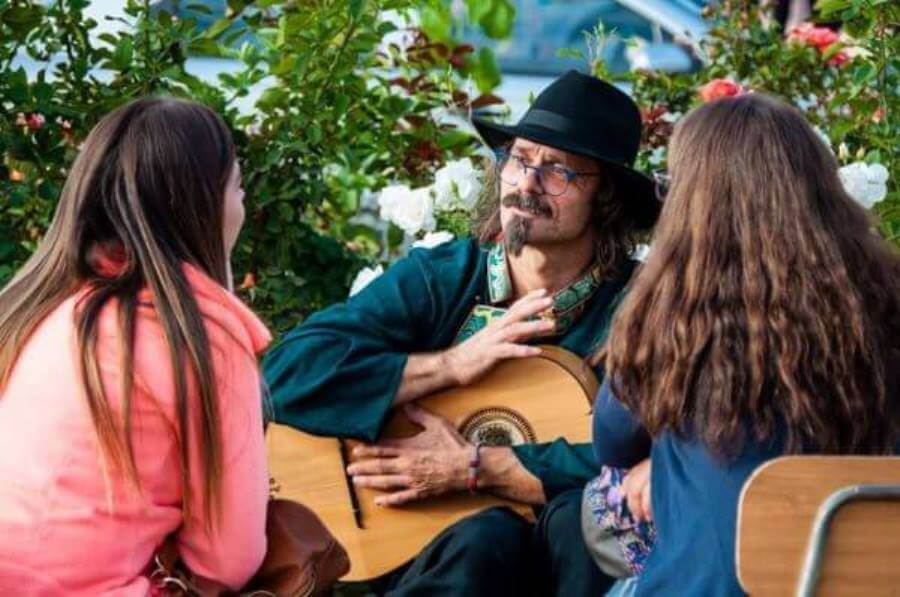
The Migrant Human Library: an experiment of social inclusion
Imagine to be seated in front of a perfect stranger who is telling you a story, his life’s one. Imagine that this stranger tells you about a trip he made in the past on foot, by plane, train or boat to reach a new place and a new life. Imagine coming close to the fear, hopes and expectations of a person who has left his country with the awareness of becoming a migrant. This simple mechanism is at the basis of a unique experience of meeting the other: the Migrant Human Library. This moving experiment of sharing and meeting between people has been realised in the city of Talca, the capital of Maule Region, situated 259 kilometres south of Santiago de Chile, Chile. To make this possible was Colectivo MIGRA, an organisation created in 2014 with the aim of supporting the process of integration and positive cohabitation between the local community and migrants. MIGRA is working to grant the respect of human rights in a society that has experienced a great increase in the migratory influx, especially in the last two years.

The idea to create a meeting with migrant tales rises from the necessity to generate spaces in which people can be involved in creating a shared collective memory, and to break stereotypes in order to create a more inclusive and intercultural society. The concept of the human library is not new: it first appeared in the years 2000s in Denmark thanks to the work of the NGO Stop the Violence, when a group of young people decided to fight against all kinds of discrimination, violence and prejudice in their country. After that, the experience was replicated in more than seventy countries all over the world. Thanks to MIGRA, the Human Library arrives for the very first time in Chile, where it focuses on the thematic of migration, with the hope that it might be re-proposed and implemented in several other social contexts.
Realising a migrant human library is not difficult. What is needed is a simply decorated public space where the human books will wait for their readers – or better, listeners – who will choose their story with the help of librarians. The experience lasts twenty minutes, during which migrants share their life stories with listeners, who can ask questions and satisfy their curiosities. All the participants do is take some time to sit and talk, in order to get to know and understand each other better, and thus adding something to the process of learning to live together and share the same territory. The importance of simple initiatives like this one reflects the need to generate more spaces of encounter between different cultures and social groups, especially in those cities that today are experiencing a deep change in their traditional identity.
Cover Photo by Claudia Pérez Gallardo and Sebastián Quezada
Chile, featured, Migrant Human Library